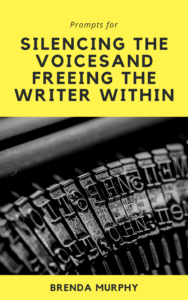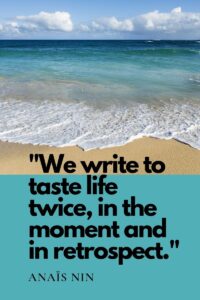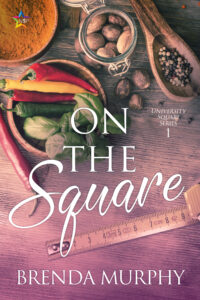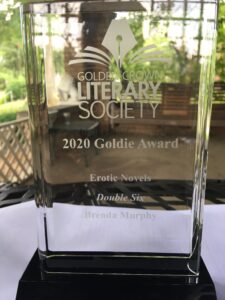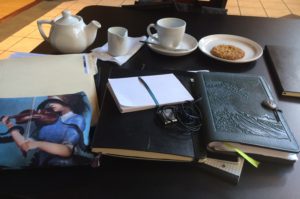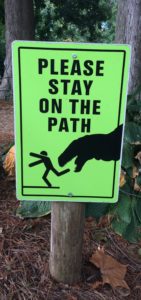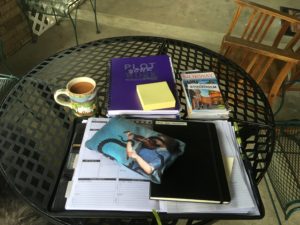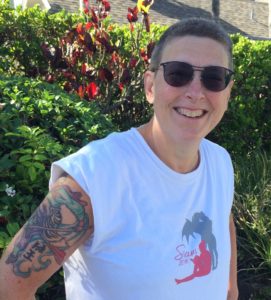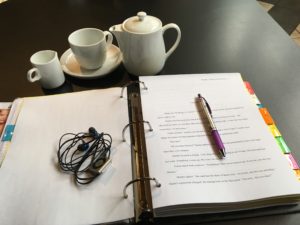 Begin at the Beginning or Not, Part One
Begin at the Beginning or Not, Part One
This is the time of year when everyone starts looking back at the year and wondering if they have accomplished their goals. For years as the year came to a close, I would struggle to remember what I had accomplished. I let myself wallow in negativity and focused on what I had not done, goals missed, and resolutions abandoned. In the end, I would be down on myself and frustrated. One way I have learned to overcome this is to look at my consistency versus my output.
Consistency means sticking to a schedule, whatever that looks like for you. It does not mean, as some author coaches insist, writing every day, writing at the same time every day, or even a specific word count, although those things can work for some folks.
My life and brain are chaotic on the best days. When working full time, after a twelve-hour shift, I would be so tired and brain-dead after work that I only wrote on weekends. When my children were small, I wrote when they were napping unless I also fell asleep, then I wrote late at night or whenever I could squeeze in the time.
If you listen to some folks who pontificate about how to be a writer, they will spew all kinds of rules and imply that there is only one way to succeed.
Here is the number one secret: there are no rules other than getting the words out of your head and onto the page, be it electronic or paper. It does not matter how you accomplish it.
So what does begin at the beginning or not, mean? It means that to start planning for your writing this next year, look back at your consistency and start there. Make your plan to get words onto the page based on achievable consistency and a measure that works for you.
I work to word counts per week, Monday through Friday, because I need to see my progress, and moving the green line in Scrivener motivates me. I don’t write on the weekends because I tried the everyday thing, which led to severe burnout.
Some writers base their work plan on minutes spent writing, for example, fifteen minutes a day, three hours every weekend, or thirty minutes during their lunch break.
The hard part of all of this is that what works for one year, half a year, or three months may not work the entire year. So taking a page from the book The Twelve Week year (https://www.amazon.com/12-Week-Year-Others-Months/dp/1118509234), make a writing plan for the next twelve weeks.
At the end of that time, evaluate how it went. Ask yourself: Did you get words on the page? Were you happy with your productivity? Did you have fun with it, or was it a chore? What could you do to make it work? Or did it work for a bit, and then something changed that didn’t work?
If it didn’t work for you, make a new plan for the next twelve weeks. It doesn’t matter if you follow a famous writer’s schedule or anyone’s advice (including mine, as your mileage may vary). Do what works.
Begin at the Beginning or Not, Part Two:
In the next twelve weeks, set yourself up to succeed. Start slow. If you had never done more than jog to the car when it was raining, you would not start running by entering a marathon. Every year writers set themselves up to fail by choosing some arbitrary number of words to write each day because a multi-published author said that is how to do it.
Unless you know you can consistently produce a specific word count in an hour, or can work continuously for several hours, do not expect that you will magically be able to do that come January 2023.
Start with baby steps because even the shortest step forward will still move you toward your objective. Writing a book is not a race, do not compare yourself to other writers, especially if it is your first or second book. Learning what works for you is part of the craft.
Your homework is to make a plan. Notice I did not say to make a resolution. Numerous studies show New Year Resolutions do not work, so skip that part.
What does work is a plan.
For example:
I will write for an hour every Saturday and Sunday afternoon.
Or,
I will write for thirty minutes every Monday through Friday.
Or,
I will write five hundred words every day
Or,
I will write five thousand words each week,Monday through Friday (this is my plan because it has worked for me for the past twelve weeks.)
These are all examples of plans. Figure out your plan. Write it down, and put it where you can see it. If you keep a bullet journal or planner, enter your planned writing sessions as a date with yourself. Do whatever you need to help yourself get where you want to go and above all do what is right/works for you.
As part of setting yourself up to succeed, check in with yourself about why it might be hard to get yourself to produce words. Are there internal blocks you are dealing with? Such as grief, distraction, imposter syndrome, fear of failure, fear of success? Don’t know what to write? Don’t know how to start?
Or are there external blocks that are interfering with your writing? Such as no desk, crappy chair, lack of privacy, physical discomfort when writing, or no pc/laptop/tablet?Kids/dogs/cats/partners or other household members not respecting your writing time?
There is a page in the Silencing the Voices Freeing the Writer Within workbook that has a page entitled “What is Stopping You” and two columns labeled Internal and External blocks. Take some time to list those and then pick one to work on to remove it from blocking your writing. If you haven’t downloaded your copy yet, you can find the workbook here: https://dl.bookfunnel.com/4b1my1xmkd
As this blog series moves forward, I will address some solutions for the above-listed blocks. This is the final post for 2022. I will return in January with the next post in the series, Outlines, Trellises, and Discovery Drafts. I wish each of you a joyous New Year, and I will see you on the flip side.


